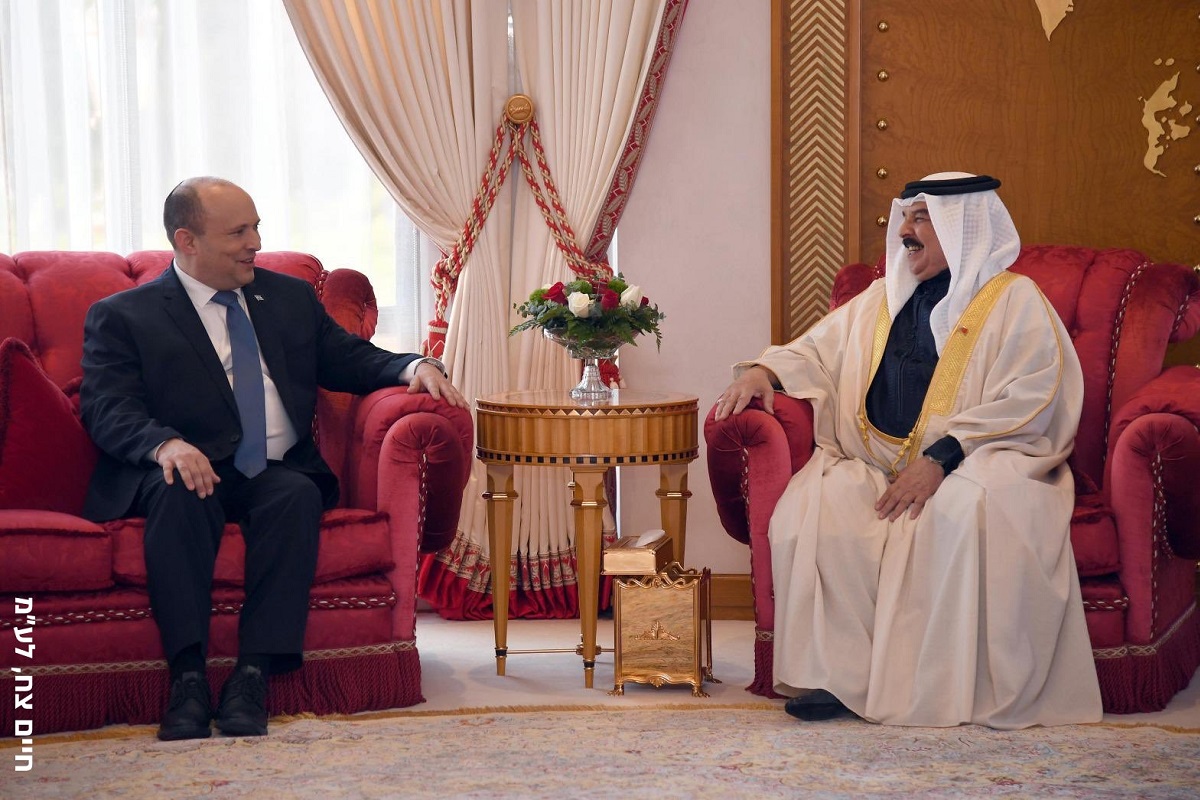Lebanese President expresses concern over Israel’s full withdrawal
Lebanese President Joseph Aoun on Monday voiced concerns over whether Israel would completely withdraw from southern Lebanon on Tuesday.
According to the Israeli Prime Minister’s Office, Bennett’s conversation with the King extended beyond the allotted time, leaving no time for their teams to meet.

(Image Source: Twitter/@naftalibennett)
Israeli Prime Minister Naftali Bennett met with Bahrain’s King Hamad bin Isa Al Khalifa and the prime minister, Crown Prince Salman bin Hamad Al Khalifa and discussed ways to build a more stable Middle East region.
This is the first official visit by an Israeli premier to Bahrain. “I think we discussed many ways to build new bridges and architecture for a stronger and more stable region. I expect to continue the excellent relationship between us,” Bennett told the king.
Advertisement
“I see a very big opportunity here,” he said. “This is the first official visit by an Israeli prime minister to Bahrain. I come from Israel with a spirit of goodwill, cooperation, of standing together in the face of common challenges, and I think our goal in this visit is to turn this peace from peace between governments to peace between people and convert it from something ceremonial to something meaningful.”
Advertisement
US Secretary of State Antony Blinken also appreciated the visit and tweeted, “This week’s visit by @IsraeliPM to Bahrain was another important step towards a better tomorrow for the Middle East. We welcome the momentous visit and look forward to building new partnerships together.”
Arriving at the crown prince’s office in Manama, he was welcomed by a military band playing “Hatikvah,” Israel’s national anthem.
Bahraini monarch said, “Because, of [Bennett’s] determination and leadership, this was a productive and successful visit,”.
According to the Israeli Prime Minister’s Office, Bennett’s conversation with the King extended beyond the allotted time, leaving no time for their teams to meet.
“All responsible nations must make an effort to achieve peace,” the crown prince said, according to a statement from Bennett’s office.
Upon arrival, at the airport, Bennett was met by a guard of honour, Bahrain’s foreign and industry ministers, the Israeli ambassador to Bahrain, and other high-ranking officials.
Notably, Bahrain normalized ties with Israel in late 2020 as part of the Abraham Accords, a series of agreements between Israel and Arab states backed by Washington.
Advertisement